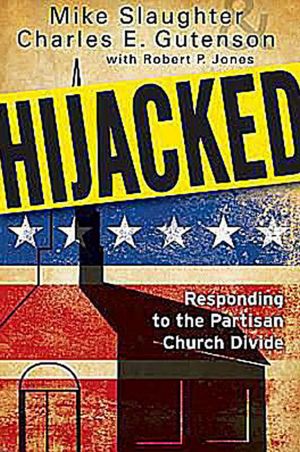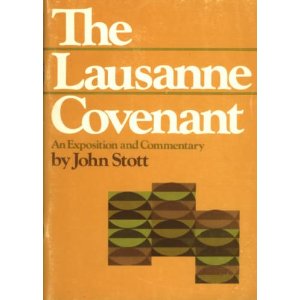{Once again, I’m so pleased to be participating in the Patheos Book Club, Take & Read!}
Some months ago I excoriated reviewed Kevin DeYoung and Greg Gilbert’s book What is the Mission of the Church? at RELEVANT magazine. Even now, re-reading my review, I feel irked by that book and its apparent goal: to orient churches away from justice ministries and toward the verbal declaration of the gospel, because, for DeYoung and Gilbert:
“It simply was not Jesus’s driving ambition to heal the sick and meet the needs of the poor, as much as he cared for them. He was sent into the world to save people from condemnation.”
This despite the fact that the Lausanne Covenant (produced–ahem–in 1974!) said this:
“…we express penitence […] for having sometimes regarded evangelism and social concern as mutually exclusive. [R]econciliation with other people is not reconciliation with God, nor is social action evangelism […] nevertheless we affirm that evangelism and socio-political involvement are both part of our Christian duty.”
So I was delighted to ‘take & read’ my copy of Hijacked: Responding to the Partisan Church Divide. This helpful little volume–written by Chuck Gutenson and Mike Slaughter–points a hopeful way forward. They’re unapologetic about the gospel being ‘good news for the poor’–my jaw dropped when I saw in their book a line I’d written to a theologian friend in an email just a few days ago:
“If [the gospel] is not good news for the poor then it is not the gospel.”
I always love it when authors bring a historical perspective to bear. It’s a little less easy to be bold in proclaiming “the Bible says X about Y!!!” when you consider the many heinous things people have interpreted the Bible to say. (Ahem. Slavery!)
The authors are gentle, but insistent, on discerning between true essentials of Christian faith and things that should not divide us. I was particularly moved by their reflections on Ephesians 2:14-18:
“For he is our peace; in his flesh he has made both groups into one and has broken down the dividing wall, that is, the hostility between us. He has abolished the law with its commandments and ordinances, so that he might create in himself one new humanity in place of the two, thus making peace, and might reconcile both groups to God in one body through the cross, thus putting to death that hostility through it. So he came and proclaimed peace to you who were far off and peace to those who were near; for through him both of us have access in one Spirit to the Father.”
“Christian identity is not centered in our political affiliations, national interests, or denominational doctrinal distinctives, but in Jesus.”
In a nutshell: faith in Christ is the foundation, and that faith does call us to address social issues, but it also stands in tension with all political systems–and therefore our final affinity can’t be with party or nation, but with Christ.
As the old hymn says (in response to a contemporary schism of its own!)–
Elect from every nation, yet one o’er all the earth;
her charter of salvation, one Lord, one faith, one birth;
one holy name she blesses, partakes one holy food,
and to one hope she presses, with every grace endued.













